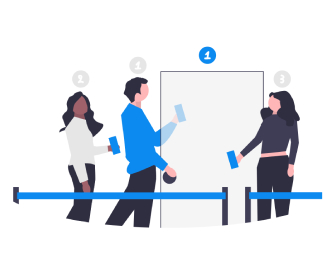What is a Social Learning Approach?
The social learning approach has emerged as a powerful method to improve learning outcomes, especially in workplace settings. Rooted in social learning theory, it highlights the importance of learning from others through observation, interaction, and collaboration. Unlike traditional, instruction-heavy learning, this approach taps into the everyday experiences of employees, promoting deeper understanding and practical application.
In modern HR and L&D functions, the shift toward collaborative, informal learning environments is accelerating, and the social learning approach is at the center of this evolution.
The social learning approach refers to a method of learning where individuals acquire new knowledge, behaviors, and skills through observing others, engaging in discussions, and participating in collaborative environments. The concept is heavily influenced by social learning theory, originally proposed by psychologist Albert Bandura, which posits that people learn by watching others and modeling their behavior.
In workplace settings, this approach means employees learn through
- Peer-to-peer collaboration
- Mentoring and coaching
- Group projects and team exercises
- Communities of practice and knowledge sharing
- Digital platforms for collaborative learning
It shifts education from the classroom to contextual, real-time settings where it is more immediate, relevant, and long-lasting.
How Does the Social Learning Approach Benefit Employee Training?
Integrating social learning into employee development programs brings a wide array of benefits that extend beyond traditional training outcomes.
1. Encourages Knowledge Sharing Across Teams
Employees often hold valuable knowledge that is not documented in manuals or eLearning modules. Social learning facilitates cross-functional sharing of such knowledge, which leads to stronger team cohesion and organizational agility.
2. Builds a Culture of Continuous Learning
When learning becomes an organic, everyday process supported by peers, employees are more likely to adopt a growth mindset and continuously upskill.
3. Enhances Engagement and Motivation
Learning from colleagues or mentors fosters a more interactive and enjoyable experience than isolated training, increasing participation and learning retention.
4. Improves Application of Skills on the Job
Since learning happens in context, employees are more likely to apply what they learn immediately, leading to better performance and quicker learning cycles.
5. Reduces Training Costs and Time
By leveraging existing employee expertise and encouraging informal learning, organizations can reduce dependency on expensive formal training sessions.
Why Should HR Leaders Care About Social Learning?
HR leaders play a key role in shaping learning culture and ensuring that employee development aligns with business goals. Adopting a social learning approach enables HR professionals to create agile, scalable learning ecosystems that improve both capability and culture.
1. Supports Succession Planning and Leadership Development
Social learning encourages mentoring, coaching, and on-the-job knowledge transfer, helping organizations build a strong leadership pipeline.
2. Aligns with Hybrid and Remote Work Needs
As physical proximity reduces, HR needs to facilitate learning through virtual collaboration tools. Social learning adapts well to remote environments where peer interaction remains possible via digital platforms.
3. Enables Personalised Learning Paths
Social learning supports personalized and role-relevant learning, allowing employees to access knowledge that directly aligns with their day-to-day responsibilities.
4. Boosts Employee Retention
Employees feel more engaged and connected when learning is embedded into the organizational culture. This sense of connection can reduce turnover, particularly among younger workers who value growth opportunities.
5. Improves Employer Branding
Organizations known for strong learning cultures are more likely to attract top talent. Fostering cooperative learning settings shows a dedication to staff development.
How Is Social Learning Different from Traditional Training Methods?
The key distinction between social learning and traditional training methods lies in their structure, delivery, and learner involvement.
| Feature | Traditional Training | Social Learning Approach |
|---|---|---|
| Mode | Classroom or eLearning modules | Peer-based, experiential |
| Role of Trainer | Central authority | Facilitator or peer contributor |
| Learning Format | Structured and time-bound | Informal, continuous |
| Engagement Style | Passive (lectures, presentations) | Active (discussions, collaborations) |
| Examples | Orientation sessions, LMS modules | Group chats, project collaboration, mentoring |
The social learning approach focuses on self-directed learning and knowledge exchange, often making it more effective for upskilling, behavioral change, and team alignment.
What Tools Support Social Learning in Modern Workplaces?
To successfully implement a social learning strategy, HR leaders must invest in the right tools that foster interaction, collaboration, and shared learning experiences. Below are some of the most effective tools and technologies:
1. Enterprise Social Networks
Platforms like Yammer, Workplace by Meta, and Slack provide spaces for knowledge-sharing, Q&A, and idea exchange across teams.
2. Learning Experience Platforms (LXPs)
Unlike traditional LMS platforms, LXPs like EdCast or Degreed curate learning content based on user preferences while allowing learners to comment, share, and collaborate.
3. Peer Mentorship Platforms
HR tech tools that enable mentorship matching (such as Qooper or Chronus) make it easier to connect experienced employees with learners in a structured format.
4. Video-Based Learning Libraries
Tools like Loom, Microsoft Stream, or internal wikis allow employees to create and share short videos or knowledge bites that support just-in-time learning.
5. Gamification and Recognition Tools
Platforms that incorporate badges, leaderboards, and peer recognition (like Kahoot or BUNCH) drive participation and keep learners engaged in collaborative learning environments.
6. Collaborative Project Management Tools
Tools like Notion, Trello, and Asana not only organize team tasks but also allow for learning-in-action by making workflows transparent and collaborative.
Empower your teams through collaborative learning with Qandle. Our integrated HR suite helps you embed social learning into everyday work, enhance knowledge sharing, and promote a culture of continuous development. Explore Qandle's L&D Solutions


 Back to Glossary
Back to Glossary